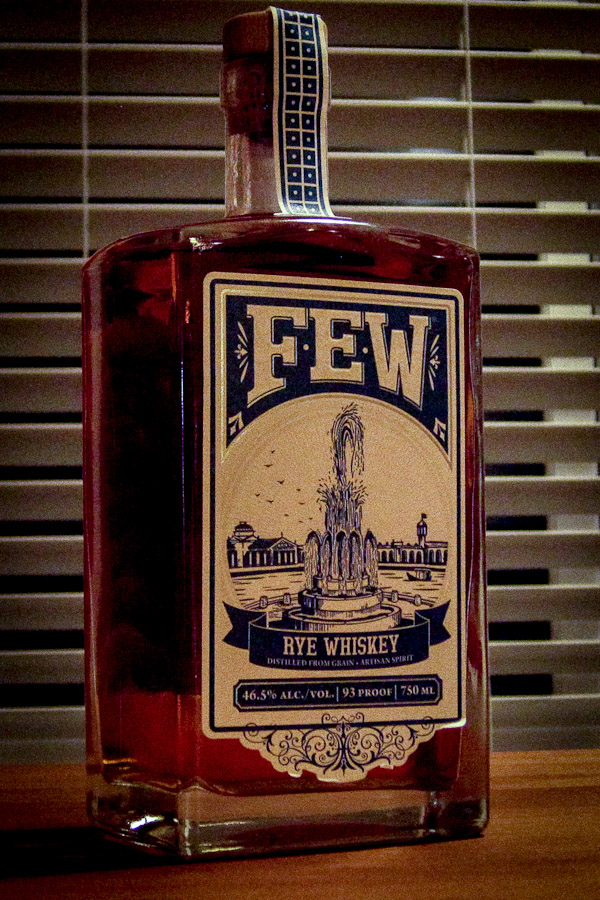Behold, the Like-a-Hug:
Designed by MIT researchers, the Like-A-Hug coat senses when a Facebook friend "likes" your picture of a sweater-wearing cat or wistful update about finding true love. Then, via some complicated electronic mechanism that's not quite clear, it rewards the wearer by filling with air to mimic a "hugging" sensation.
So basically this is an article of clothing that broadcasts the owner's craven need for approval, as well as suggesting his or her crushing failure to attract hugs from flesh-and-blood beings.
The project team has produced a video, too:
And hey, after last night, who doesn't need a hug?
Last night, in the West Loop:

After tomorrow's performance in Madison, Wis., Girlyman will be taking a break from performing. I'm glad I got a chance to see them.
Doris and Ty:

And the opening act, Chastity Brown, whose CD I bought on the way out. Great stuff:

 A couple weeks ago, I finally tasted whisky from the FEW Distillery in Evanston, Ill. FEW is named for Frances Elizabeth Willard, who, in the mid-19th century, ran the Women's Christian Temperance Union and later bequeathed her house to the organization.
A couple weeks ago, I finally tasted whisky from the FEW Distillery in Evanston, Ill. FEW is named for Frances Elizabeth Willard, who, in the mid-19th century, ran the Women's Christian Temperance Union and later bequeathed her house to the organization.
In other words, this is a distillery named after one of the leading advocates for prohibition, headquartered in a city that was dry for more than a century.
Also, FEW's master distiller, Paul Hletko, is one of the first people I met in law school. Mazel tov, Paul: you've made a great collection of spirits.
Before I forget, and get lost in my work again today:
All for now...
It seems that the more I have to do, the more I'm able to do. In other words, when I haven't got a lot of assignments, I tend to veg out more. Right now I'm on a two-week development cycle, with an old client that predates my current job anxious for some bug fixes. Oddly, the old client tends to get his bug fixes when I have more to do at my regular gig.
Of course, blogging might suffer a bit. In fact I just submitted a draft blog entry for the 10th Magnitude Developer Blog that should hit tomorrow sometime. Until then, it's embargoed (which I hate because it's a timely and useful topic), and I have a feature to finish.
I guess all of this means, with apologies to René Magritte, ceci n'est pas un blog post.
Apparently all that junk DNA in your cells isn't junk after all:
Now scientists have discovered a vital clue to unraveling these riddles. The human genome is packed with at least four million gene switches that reside in bits of DNA that once were dismissed as “junk” but that turn out to play critical roles in controlling how cells, organs and other tissues behave. The discovery, considered a major medical and scientific breakthrough, has enormous implications for human health because many complex diseases appear to be caused by tiny changes in hundreds of gene switches.
As scientists delved into the “junk” — parts of the DNA that are not actual genes containing instructions for proteins — they discovered a complex system that controls genes. At least 80 percent of this DNA is active and needed. The result of the work is an annotated road map of much of this DNA, noting what it is doing and how. It includes the system of switches that, acting like dimmer switches for lights, control which genes are used in a cell and when they are used, and determine, for instance, whether a cell becomes a liver cell or a neuron.
In one of the Nature papers, researchers link the gene switches to a range of human diseases — multiple sclerosis, lupus, rheumatoid arthritis, Crohn’s disease, celiac disease — and even to traits like height. In large studies over the past decade, scientists found that minor changes in human DNA sequences increase the risk that a person will get those diseases. But those changes were in the junk, now often referred to as the dark matter — they were not changes in genes — and their significance was not clear. The new analysis reveals that a great many of those changes alter gene switches and are highly significant.
By the way, this is consistent with natural selection theory, and resolves a problem biologists had reconciling the two. It's difficult to explain how useless genes would remain in the genome, because organisms that got the same results from fewer base-pairs should have an advantage. The new evidence agrees with the theory.
This is why I love science: it's only wrong until we learn new things.
Seriously:
Within the bottle, a postcard written in June 1914 by Captain CH Brown of the Glasgow School of Navigation promised the finder a reward of 6 pence. It had been part of a scientific experiment in which 1,890 such bottles were released, in a bid to chart currents around Scotland.
Even odder, the person who found this 98-year-old message worked on the same boat as a man who found a 93-year-old message back in 2006. The bottles were part of an early-20th-century research project to map Scotland's sea currents.
Beloit College's Mindset List has me thinking: what will future lists look like? Some ideas:
The 2024 List
- The Class of 2024 were born in 2002.
- They never saw Captain Kangaroo or Mr. Rogers on live TV.
- The World Trade Center has never existed.
- There has always been an American military presence in Afghanistan.
- Monica Lewinsky means as much to them as Christine Keeler meant to their parents.
The 2034 List
- The Class of 2034 were born in 2012.
- Heath Ledger, Michael Jackson, John Hughes, and Brittany Murphy died before they were born.
- The President has always been black, Latino, or a woman.
- They have never heard their parents worry about providing health insurance.
- Their classmates could include Samuel Affleck and Blue Ivy Knowles.
The 2059 List
- The Class of 2059 were born in 2037.
- The Mississippi River has always flowed through Morgan City, Louisiana.
- Scotland, Catalunya, Kurdistan, and Wallonia have always been independent countries; West Sahara, Nepal, and North Korea have never been.
- To them, an iPad seems as quaint as a Selectric was to their parents.
The 2102 List
- The Class of 2102 were born in 2079.
- They are the 100th class to have their own List.
- Incoming first-year classes have always spent the previous year in the military or in public service.
- Beloit College's campus has always had palm trees, and the surrounding area has always had orange groves.
- New York City has always had a seawall; New Orleans and Miami have always been islands; Greenland has always been green.
- Trains from Chicago to New York, Atlanta, and Kansas City have always been faster and less expensive than airplanes.
- They have always needed a passport to visit Dallas, and never needed one to visit Toronto.
- People have always walked on Mars, and there has always been a permanent base on the moon.
Any other ideas?
Clearing out the ballast:
- Despite the initial forecasts, Hurricane Isaac's remnants missed Chicago.
- Beloit College, just outside Rockford, Ill., has published its Class of 2016 Mindset. Since 1998 they've published a list of facts about the way incoming first-years think. This year's list includes "Women have always piloted war planes and space shuttles" and "A bit of the late Gene Roddenberry, creator of Star Trek, has always existed in space."
- The Economist's Gulliver blog bemoans Tampa's and Charlotte's piss-poor walkability, and how Tampa especially repudiates the loony-right conspiracy theory about Agenda 21.
- The wackos also got on NPR this morning with a story about yet more efforts to forbid Sharia law, which ended with the vacuous understatement "The proposals are a solution in search of a problem, according to many." Apparently NPR just wanted to shine a light on the crazy without correcting it.
- Speaking of crazy, with just four weeks left in the season, the Cincinnati Reds are the best team in baseball right now, with the Washington Nationals just behind them. The Cubs, now 51-82, earned their "E" just yesterday, fully two weeks after the Houston Astros (41-93) became the first team to earn mathematical elimination this season.
Updates as conditions warrant.
This morning I installed Microsoft Windows 8 on my laptop. As a professional geek, getting software after it's released to manufacturing but before the general public is a favorite part of my job.
It took almost no effort to set up, and I figured out the interface in just a few minutes. I like the new look, especially the active content on the Start screen. It definitely has a more mobile-computing look than previous Windows versions, with larger click targets (optimized for touch screens) and tons of integration with Windows Accounts. I haven't linked much to my LiveID yet, as I don't really want to share that much with Microsoft, but I'll need it to use SkyDrive and to rate and review the new features.
I also did laundry, vacuumed, cleaned out all my old programming books (anyone want a copy of Inside C# 2 from 2002?), and will now go shopping. And I promise never to share that level of picayune personal detail again on this blog.